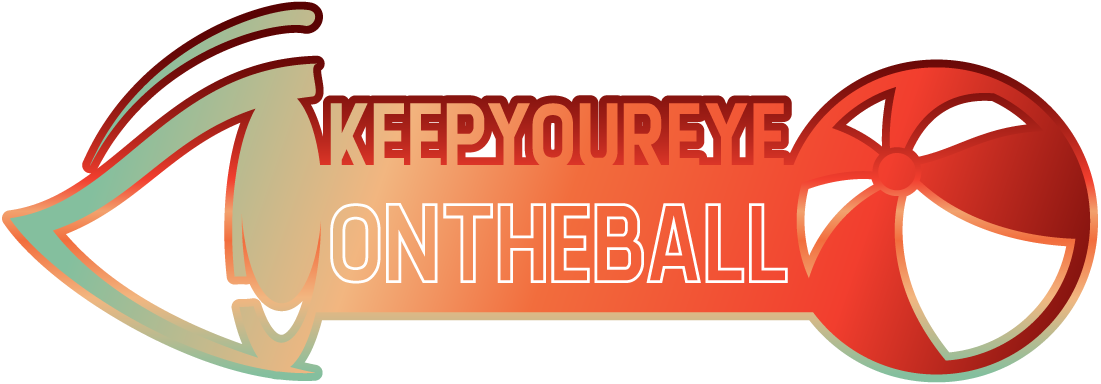“Unlock the secret to achieving your fitness goals with optimal nutrition and training. Discover how understanding the best nutrition for training, incorporating essential nutrients for endurance sports, and implementing effective meal planning strategies can transform your body and mind. Whether you’re a seasoned athlete or just starting out, this comprehensive guide provides actionable tips and expert advice to help you optimize your nutrition and training regimen, leading to improved performance, increased energy, and a stronger, leaner physique.”
Understanding Macronutrients for Athletes
To optimize nutrition for training, consider the following essential food groups:
- Nutrition Facts
- **Lean Protein Sources**: Include poultry like chicken breast, turkey breast, and lean cuts of red meat such as sirloin or tenderloin.
- **Fish and Seafood**: Fatty fish like salmon, tuna, and sardines are rich in omega-3 fatty acids, which support muscle recovery and growth.
- **Dairy and Calcium-Rich Foods**: Milk, Greek yogurt, and cheese provide calcium, vitamin D, and protein necessary for muscle function and repair.
- **Legumes and Beans**: Legumes like black beans, chickpeas, and lentils offer plant-based protein, fiber, and complex carbohydrates for sustained energy.
- **Eggs and Nuts**: Eggs are an excellent source of protein, while nuts like almonds and walnuts provide healthy fats and antioxidants.
What is the Ideal Macronutrient Ratio for Athletes?
The ideal macronutrient ratio for athletes varies depending on factors such as age, sex, weight, and activity level. However, a general guideline is to consume 15-30% of daily calories from protein, 25-40% from fat, and 45-65% from complex carbohydrates.
How to Calculate Daily Caloric Needs for Optimal Performance
Calculating daily caloric needs involves considering factors such as basal metabolic rate, activity level, and weight loss goals. A commonly used formula is the Harris-Benedict equation, which estimates basal metabolic rate based on age, sex, and weight. From there, multiply by an activity factor to account for daily energy expenditure.
Essential Nutrients for Endurance Sports
Endurance sports require a unique combination of nutrients to support optimal performance. Two crucial nutrients are carbohydrates and protein.
Importance of Carbohydrates for Energy Production
Carbohydrates are the primary source of energy for endurance sports. They provide quick energy for short bursts of activity and sustained energy for longer periods. Focus on complex carbohydrates such as whole grains, fruits, and vegetables.
Role of Protein in Muscle Recovery and Growth
Protein plays a critical role in muscle recovery and growth after endurance exercise. Aim to consume 1.2-1.6 grams of protein per kilogram of body weight daily, spread across 3-5 main meals and 2-3 snacks.
Training and Nutrition Tips for Peak Performance
To achieve peak performance, it’s essential to combine rigorous training with a well-balanced diet. At Keep Your Eye on the Ball, we’re committed to helping athletes and sports enthusiasts optimize their nutrition for maximum results.
Understanding Macronutrients for Athletes
When it comes to training, understanding the importance of macronutrients is crucial. The ideal macronutrient ratio for athletes varies depending on individual needs, but a general guideline is to consume 55-65% of calories from complex carbohydrates, 15-25% from fat, and 20-30% from protein.
Learn More About Macronutrients for Athletes
Essential Nutrients for Endurance Sports
Endurance sports require a unique set of nutrients to support energy production and recovery. Carbohydrates are the primary source of energy for endurance activities, with complex carbs such as whole grains, fruits, and vegetables providing sustained energy.
Discover the Importance of Carbohydrates for Endurance Sports
Building Muscle Mass with Adequate Protein Intake
Adequate protein intake is essential for building and repairing muscle tissue. Aim to consume 1.2-1.6 grams of protein per kilogram of body weight daily, spread across 3-5 main meals and 2-3 snacks.
Learn How to Choose the Right Protein Sources for Muscle Growth
Timing of Meals for Optimal Performance
The timing of meals can significantly impact performance. Aim to eat a balanced meal with complex carbohydrates, protein, and healthy fats 1-3 hours before training, and a snack with easily digestible carbs and protein 30-60 minutes before exercise.
Understand the Importance of Pre- and Post-Workout Nutrition
What Is the Best Nutrition for Training?
To optimize nutrition for weight training, consider the following evidence-based strategies:
A. Understanding Macronutrients for Athletes
Training and nutrition tips for athletes are essential for achieving peak performance and personal growth. By understanding the ideal macronutrient ratio for athletes, you can fuel your body for optimal results.
- What is the ideal macronutrient ratio for athletes?
- How to calculate daily caloric needs for optimal performance
The American College of Sports Medicine recommends allocating 1.6-2.2 grams of protein per kilogram of body weight, 2-3 grams of carbohydrates per kilogram, and 0.5-1 gram of healthy fats per kilogram. This balance supports muscle protein synthesis, energy production, and overall health.
B. Essential Nutrients for Endurance Sports
10 fitness foods to help you get in shape faster are crucial for endurance sports. Carbohydrates play a vital role in energy production, while protein helps with muscle recovery and growth.
- Importance of carbohydrates for energy production
- Role of protein in muscle recovery and growth
By incorporating these nutrients into your diet, you can optimize your performance and achieve your fitness goals.
At Least 4 Tips for Better Nutrition
Here are four tips for better nutrition:
A. Meal Planning Strategies for Weight Loss
Meal planning is essential for weight loss. Here are some strategies to help you plan your meals:
- How to plan meals for optimal nutrient intake
- Benefits of meal prep for busy athletes
By planning your meals in advance, you can ensure that you’re getting the nutrients you need to support your fitness goals.
B. Hydration and Electrolyte Balance
Hydration and electrolyte balance for endurance exercise are critical for physical performance and recovery. Monitoring urine output and color can help you ensure proper hydration.
- Importance of staying hydrated during exercise
- How to replenish electrolytes after intense workouts
By prioritizing hydration and electrolyte balance, you can optimize your performance and reduce the risk of injury.
Training and Nutrition Tips for Athletes
To learn fitness and nutrition, consider the following steps:
- Develop a personalized meal plan: Work with a registered dietitian or a qualified healthcare professional to create a tailored eating plan that meets your nutritional needs and health goals.
- Track your macronutrient intake: Use a food diary or an app to monitor your daily consumption of carbohydrates, proteins, and fats, allowing you to make adjustments as needed.
- Incorporate physical activity: Engage in regular exercise, such as cardio, strength training, and flexibility exercises, to improve overall fitness and burn calories.
- Monitor progress through measurements and tracking: Regularly weigh yourself, take body measurements, and track your progress photos to evaluate changes in your physique and overall health.
- Stay hydrated: Drink plenty of water throughout the day to aid in digestion, boost energy levels, and support muscle growth.
- Educate yourself on sustainable habits: Learn about long-term lifestyle changes, such as mindful eating, portion control, and stress management, to maintain a healthy relationship with food and exercise.
Understanding Macronutrients for Athletes
The ideal macronutrient ratio for athletes varies depending on individual needs and goals. Generally, a balanced diet consisting of 15-20% protein, 55-65% carbohydrates, and 20-25% fat is recommended.
A study published in the Journal of the Academy of Nutrition and Dietetics found that a calorie-restricted diet with a balance of protein, fat, and carbohydrates resulted in significant weight loss and improved metabolic health (1).
For example, a study published in the International Journal of Sport Nutrition and Exercise Metabolism found that a diet rich in protein and complex carbohydrates can improve endurance performance and reduce muscle damage (2).
Essential Nutrients for Endurance Sports
Carbohydrates are an essential source of energy for endurance sports. They provide quick energy for short bursts of activity and sustained energy for longer periods of exercise.
A study published in the Journal of Applied Physiology found that consuming 60-80 grams of carbohydrates per hour during endurance exercise can delay fatigue and improve performance (3).
Protein is also important for endurance athletes, as it helps to repair and rebuild muscle tissue damaged during exercise.
A study published in the Journal of Strength and Conditioning Research found that consuming 1.2-1.6 grams of protein per kilogram of body weight per day can improve muscle recovery and reduce muscle soreness (4).
Building Muscle Mass with Adequate Protein Intake
Adequate protein intake is essential for building and repairing muscle tissue. The recommended daily protein intake for muscle growth is 1.6-2.2 grams per kilogram of body weight per day.
A study published in the Journal of the International Society of Sports Nutrition found that consuming 1.6-2.2 grams of protein per kilogram of body weight per day can improve muscle mass and strength (5).
Choosing the right protein sources is also important. Lean meats, fish, eggs, dairy products, and plant-based options such as beans and lentils are all good sources of protein.
Timing of Meals for Optimal Performance
The timing of meals can impact athletic performance. Consuming a meal with carbohydrates and protein 1-3 hours before exercise can provide sustained energy and support muscle function.
A study published in the Journal of the International Society of Sports Nutrition found that consuming a meal with carbohydrates and protein 1-3 hours before exercise can improve endurance performance and reduce muscle damage (6).
Post-workout nutrition is also important. Consuming a meal with carbohydrates and protein within 30-60 minutes after exercise can help to promote muscle recovery and reduce muscle soreness.
Online Resources for Personalized Coaching
Working with a certified coach can provide personalized guidance and support for achieving fitness and nutrition goals.
The National Academy of Sports Medicine offers online coaching services, which can provide personalized guidance and support for athletes and fitness enthusiasts.
The American Council on Exercise also offers online coaching services, which can provide personalized guidance and support for athletes and fitness enthusiasts.
Books and Documentaries for Fitness Education
There are many great books and documentaries available for fitness education.
“The Plant Paradox” by Dr. Steven Gundry provides a comprehensive guide to plant-based nutrition and fitness.
“The Blue Zones Solution” by Dan Buettner provides a comprehensive guide to longevity and wellness.
“What the Fit” by Kelly LeVeque provides a comprehensive guide to fitness and nutrition for women.
How to Learn Fitness and Nutrition?
To become proficient in fitness and nutrition, it’s essential to learn from reliable sources and experts in the field.
Online Resources for Personalized Coaching
Working with a certified coach online can be incredibly beneficial for achieving your fitness goals. At Keep Your Eye on the Ball, we offer personalized coaching services that cater to your unique needs and preferences.
Learn More About Our Coaching Services
When searching for online resources, look for reputable websites and platforms that offer evidence-based information and expert guidance. Some notable examples include the Academy of Nutrition and Dietetics (AND Journal) and the American Council on Exercise (ACE Fitness).
Books and Documentaries for Fitness Education
Reading books and watching documentaries can be an excellent way to gain knowledge and inspiration for your fitness journey.
Some recommended books for beginners include “The Plant Paradox” by Dr. Steven Gundry and “Thrive” by Brendan Brazier.
Documentaries like “What the Health” and “Forks Over Knives” offer valuable insights into the world of nutrition and wellness.
Explore Our Favorite Books on Fitness and Nutrition
At Keep Your Eye on the Ball, we’re committed to providing high-quality resources and support to help you achieve your fitness goals.
How Do I Teach Myself Nutrition?
To teach yourself nutrition effectively, start by understanding your nutritional needs. Assess your dietary requirements, considering factors like age, sex, weight, height, and activity level. For personalized guidance, consult reputable sources like the Academy of Nutrition and Dietetics (Academy of Nutrition and Dietetics) or the National Institutes of Health (National Institutes of Health).
A. Understanding Food Labels and Nutrition Facts
Once you have a solid grasp of your nutritional needs, move on to understanding food labels and nutrition facts. Learn how to read food labels for optimal nutrition, paying close attention to serving sizes and ingredient lists. Check expiration dates to ensure you’re consuming fresh, nutritious foods.
B. Using Technology for Nutrition Tracking
Next, explore ways to leverage technology for nutrition tracking. Utilize apps like MyFitnessPal (MyFitnessPal) or Lose It! (Lose It!) to monitor your daily nutrient intake and set realistic goals. By integrating technology into your daily life, you’ll be better equipped to make informed choices and achieve your nutrition goals.
What Is the Best Nutrition for Training?
To achieve peak performance and optimal results, understanding the best nutrition for training is crucial. As a athlete or sports enthusiast, it’s essential to recognize the importance of proper nutrition in supporting your training regimen.
A. Understanding Macronutrients for Athletes
The ideal macronutrient ratio for athletes varies depending on individual factors such as age, sex, weight, and activity level. However, a general guideline is to consume 15-20% of daily calories from protein, 55-65% from complex carbohydrates, and 20-25% from healthy fats.
Calculating daily caloric needs for optimal performance requires considering factors such as training intensity, duration, and frequency. A commonly used formula is the Harris-Benedict equation, which estimates basal metabolic rate (BMR) and then multiplies it by an activity factor to account for physical activity.
Learn more about training nutrition tips for athletes.
B. Essential Nutrients for Endurance Sports
Endurance sports require a unique set of nutrients to optimize performance and prevent injury. Carbohydrates are the primary source of energy for endurance activities, with a recommended daily intake of 2-3 grams per kilogram of body weight.
Protein plays a critical role in muscle recovery and growth after endurance exercise. Aim to consume 1.2-1.6 grams of protein per kilogram of body weight within 30-60 minutes after exercise.
Read more about the science behind endurance sports nutrition.
At Least 4 Tips for Better Nutrition
A. Meal Planning Strategies for Weight Loss
Meal planning is a crucial step in achieving weight loss and optimizing nutrition for training. Consider the following strategies:
- Plan meals around whole, unprocessed foods such as fruits, vegetables, lean proteins, and whole grains.
- Allow for flexibility and adjust portion sizes based on individual calorie needs.
- Consider meal prepping or cooking in bulk to save time and reduce stress.
- Keep track of daily calorie intake using a food diary or mobile app.
Learn more about meal prep strategies for weight loss.
B. Hydration and Electrolyte Balance
Staying hydrated is essential for optimal performance and recovery. Aim to drink at least 8-10 glasses of water per day, and consider increasing fluid intake during intense or prolonged exercise.
Electrolyte balance is also critical, particularly during endurance activities. Consume electrolyte-rich foods or supplements, such as bananas (potassium), avocados (potassium), and coconut water (electrolyte-rich beverage).
Read more about the importance of hydration and electrolyte balance in endurance sports.



0 Comments